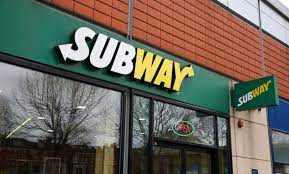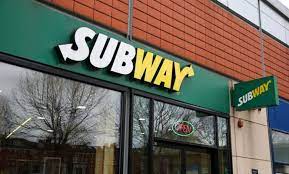
In an effort to overcome a difficult environment for leveraged buyouts and obtain the company's asking price of more than $10 billion, the bankers overseeing the sale process for Subway have provided the private equity firms bidding for the sandwich chain with a $5 billion acquisition financing plan, according to people familiar with the situation.
Since Subway announced in February that it was considering a sale, interest rates have been increasing and worries about an economic slowdown have grown, making finance more expensive and less accessible for buyout groups pursuing acquisitions. This affects the price that private equity firms are willing to pay to acquire businesses.
According to one of the reports, the current range of bids for Subway is between $8.5 billion and $10 billion. According to the individuals, JPMorgan Chase & Co., Subway's financial advisor, is now hopeful that a $5 billion debt financing package it has proposed will demonstrate to buyout firms that they can borrow enough to build a desirable deal even at a valuation of $10 billion or more.
According to the sources, the debt financing, which consists of a combination of loans and bonds, is 6.75 times Subway's $750 million annual earnings before interest, taxes, depreciation, and amortisation.
It's probable that this funding will just be a short-term fix. This is due to the fact that, according to the sources, a private equity buyer of Subway would probably find it more cost-effective to finance the purchase over the long term through a whole company securitization (WBS). This would include borrowing money and using franchise royalties as security.
Ratings agencies must conduct store-by-store due diligence for WBS financing, which can take over a year. To close a transaction with Subway, bidders would have to rely on JPMorgan's loan package or get their own financing, then later refinance through a WBS scheme, the sources claimed.
One of the banks involved in conversations about long-term financing is Barclays Plc, a significant player in the market for WBS financing, according to the sources.
Subway, based in Milford, Connecticut, has been updating its operations to address antiquated decor and $5 foot-long sandwich specials that reduced franchisee profitability. The chain began a turnaround plan that has helped sales increase in 2021 with the launch of a new menu and a blitzy marketing campaign.
According to the sources, there is also the choice of a preferred equity component with a 15% interest rate included in JPMorgan's financing package. Three of the individuals also said that because this is a more expensive option, private equity firms might not choose it.
Yes, Subway is allowing bidders to use any form of financing they choose, provided they can demonstrate that they can obtain committed financing.
More than ten private equity companies submitted second-round bids for Subway last week, one of the sources claimed, adding that Subway has dismissed low bids and is narrowing the field of final bidders. Among the private equity firms taking part in the auction are Bain Capital, TPG Inc., Advent International Corp., TDR Capital, Goldman Sachs Group Inc.'s buyout arm, and Roark Capital, according to the people.
Bain, TPG, and Advent have already had discussions with Subway about allowing bidders to collaborate before submitting final offers, the people said.
The sources were not named in the rep[orts because the specifics of the sale process are private. TPG, Advent, and Bain all declined to comment. Requests for comments from TDR and Roark were not immediately reacted to. JPMorgan, Goldman Sachs, Barclays, Subway, and declined to comment.
The firm was established in 1965 by family friend Peter Buck and 17-year-old Fred DeLuca. Since the opening of the first location as "Pete's Super Submarines" in Bridgeport, Connecticut, the company has been held by the founding families.
The network, which has around 37,000 outlets worldwide, is combining locations with fewer and larger, well-capitalized franchisees in place of its traditional dependence on franchisees who operate only one or two shops.
Earlier this month, Subway released a report stating that first-quarter global comparable sales were 12.1% higher and that more people were visiting the restaurants as a result of location upgrades. Competitors like Jimmy John's, Firehouse Subs, Jersey Mike's Subs, and Potbelly Corp. have been posing an increasing threat to it.
When John Chidsey, the current CEO of Subway, ran the burger fast-food restaurant chain, TPG and Bain were a part of the ownership group that controlled Burger King. For its part, Advent has made investments in eateries like Bojangles and coffee shop owner First Watch. The EG Group and ASDA grocery chain are both under the management of TDR.
(Source:www.reuters.com)
Since Subway announced in February that it was considering a sale, interest rates have been increasing and worries about an economic slowdown have grown, making finance more expensive and less accessible for buyout groups pursuing acquisitions. This affects the price that private equity firms are willing to pay to acquire businesses.
According to one of the reports, the current range of bids for Subway is between $8.5 billion and $10 billion. According to the individuals, JPMorgan Chase & Co., Subway's financial advisor, is now hopeful that a $5 billion debt financing package it has proposed will demonstrate to buyout firms that they can borrow enough to build a desirable deal even at a valuation of $10 billion or more.
According to the sources, the debt financing, which consists of a combination of loans and bonds, is 6.75 times Subway's $750 million annual earnings before interest, taxes, depreciation, and amortisation.
It's probable that this funding will just be a short-term fix. This is due to the fact that, according to the sources, a private equity buyer of Subway would probably find it more cost-effective to finance the purchase over the long term through a whole company securitization (WBS). This would include borrowing money and using franchise royalties as security.
Ratings agencies must conduct store-by-store due diligence for WBS financing, which can take over a year. To close a transaction with Subway, bidders would have to rely on JPMorgan's loan package or get their own financing, then later refinance through a WBS scheme, the sources claimed.
One of the banks involved in conversations about long-term financing is Barclays Plc, a significant player in the market for WBS financing, according to the sources.
Subway, based in Milford, Connecticut, has been updating its operations to address antiquated decor and $5 foot-long sandwich specials that reduced franchisee profitability. The chain began a turnaround plan that has helped sales increase in 2021 with the launch of a new menu and a blitzy marketing campaign.
According to the sources, there is also the choice of a preferred equity component with a 15% interest rate included in JPMorgan's financing package. Three of the individuals also said that because this is a more expensive option, private equity firms might not choose it.
Yes, Subway is allowing bidders to use any form of financing they choose, provided they can demonstrate that they can obtain committed financing.
More than ten private equity companies submitted second-round bids for Subway last week, one of the sources claimed, adding that Subway has dismissed low bids and is narrowing the field of final bidders. Among the private equity firms taking part in the auction are Bain Capital, TPG Inc., Advent International Corp., TDR Capital, Goldman Sachs Group Inc.'s buyout arm, and Roark Capital, according to the people.
Bain, TPG, and Advent have already had discussions with Subway about allowing bidders to collaborate before submitting final offers, the people said.
The sources were not named in the rep[orts because the specifics of the sale process are private. TPG, Advent, and Bain all declined to comment. Requests for comments from TDR and Roark were not immediately reacted to. JPMorgan, Goldman Sachs, Barclays, Subway, and declined to comment.
The firm was established in 1965 by family friend Peter Buck and 17-year-old Fred DeLuca. Since the opening of the first location as "Pete's Super Submarines" in Bridgeport, Connecticut, the company has been held by the founding families.
The network, which has around 37,000 outlets worldwide, is combining locations with fewer and larger, well-capitalized franchisees in place of its traditional dependence on franchisees who operate only one or two shops.
Earlier this month, Subway released a report stating that first-quarter global comparable sales were 12.1% higher and that more people were visiting the restaurants as a result of location upgrades. Competitors like Jimmy John's, Firehouse Subs, Jersey Mike's Subs, and Potbelly Corp. have been posing an increasing threat to it.
When John Chidsey, the current CEO of Subway, ran the burger fast-food restaurant chain, TPG and Bain were a part of the ownership group that controlled Burger King. For its part, Advent has made investments in eateries like Bojangles and coffee shop owner First Watch. The EG Group and ASDA grocery chain are both under the management of TDR.
(Source:www.reuters.com)





